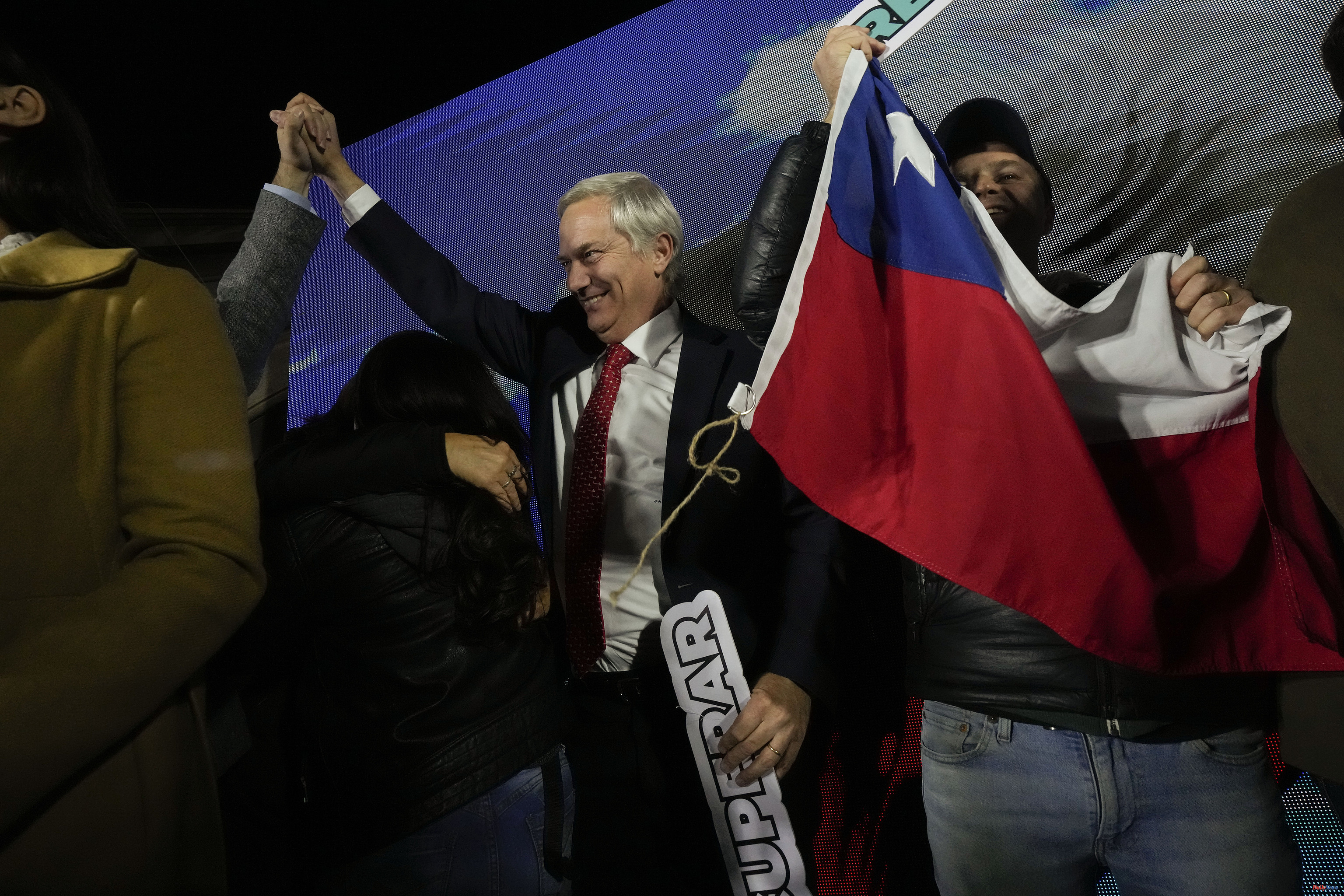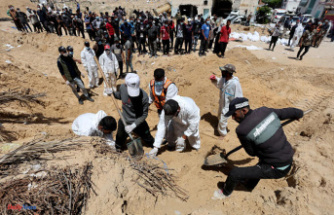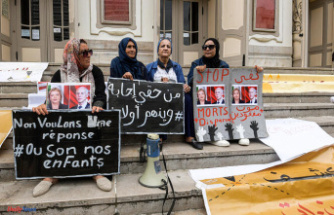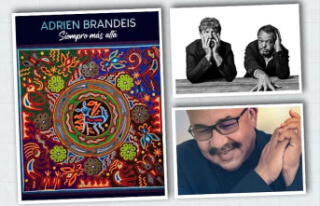Chile experienced a true political earthquake this Sunday with the resounding victory of the right in the elections to the Constitutional Council that should shape a new Magna Carta. The big winner was José Antonio Kast, the leader of the hard right clearly surpassed by Gabriel Boric just 18 months ago in the runoff that led him to the presidency.
"Chile has defeated a failed government," Kast summed up after an election in which his force, the Republicans, won 22 of the 50 councillors. A representative of the hard right, Kast can add those votes to the 11 obtained by Chile Seguro, the list of the moderate right. Unity for Chile, the list of the ruling left, got 17 seats. Todo por Chile, the list of the center left, did not get conventional.
Boric, in the most delicate moment of his government, sought to build bridges with Kast and the space of the right as a whole: "The previous process, and we must say it, failed among other things because we did not know how to listen to each other among those who thought differently. I want to invite of course, to the Republican Party, which has obtained an unquestionable first majority in this election, not to make the same mistake that we made at the time. This process cannot be one of vendettas, but of putting Chile and its people ahead before the partisan or personal interests".
It will not be easy for the message of the young 37-year-old president to find an echo among Republicans. On the same night of the elections in which his list obtained 35.48% of the votes, to which 28.45% from the center-right is added, Kast made an extremely critical assessment of the government more to the left since that of Salvador Allende in the '70s.
According to Kast, Boric "has been unable to face the crisis of migratory, economic and social insecurity." In another section of his reaction, the former presidential candidate left a door slightly open to an understanding by saying that "it is not a time for celebrations or divisions," but for "work and unity."
The defeat was expected by the government, but it did not enter into the calculations that the sum of the seats on the right would give them the power to decide the Constitution at will. The collapse of the center-left, which did not get representation, left Boric's left without support, which remained silent during practically the entire electoral campaign. This marked a clear contrast with what his role was in the previous constitutional process, closed with a plebiscite in September 2022 that the "no" vote won by 62% after a campaign in which the head of state turned enthusiastically to favor of "yes".
Kast's success contains a whole paradox, since he was one of the politicians who opposed retrying a constitutional process after the September 2022 shock.
"Change of era", wrote on twitter, on the other side of the Andes Mountains, the right-wing libertarian Javier Milei. "Congratulations, José Antonio Kast, for leading this triumph. Long live freedom, damn it," wrote the Argentine politician, who the polls show with good chances in this year's presidential elections.
Thus, Chilean politics continues to be unpredictable: 78.28% of voters approved the opening of a constituent process in October 2020, but 61.89% rejected the Constitution proposal just 11 months later. This Sunday, eight months after that resounding "no", Chileans once again show signs of political autonomy and a shift in their desires and priorities.
That fervor for the constitutional change unleashed after the social explosion of October 2019, which ended up bringing the coalition headed by Boric, who 10 years earlier demonstrated in the streets as a student leader, to the Palacio de La Moneda, no longer exists: In the Baquedano Plaza (or "Dignity", as the protesters renamed it) three armored vehicles were seen in the days prior to the election as a deterrent. And a few kilometers away, in the upper and upper-middle-class neighborhood of Vitacura, the fervor of the youth was not for the constitutional change, but for getting, after waiting for more than an hour, the coveted "donuts" from a local Fashion.
"We have a historic opportunity to give Chile a constitution that makes common sense to citizens," said lawmaker Juan Antonio Coloma, of the right-wing Independent Democratic Unit (UDI). "I think the main thing is a giant defeat of Octobrism, of those who tried to burn Chile," he added.
The Constitutional Council will work on a preliminary text prepared by a group of experts, a very different process from the previous one, in which the constitutional convention, made up of few experts, quite a few politicians and a few outlandish characters, produced a text indigestible to the majority of the Chileans, who may have led La Moneda to the left, but they remain an essentially conservative people.
Approving a Constitution that leaves in memory the one sanctioned in 1980 during the dictatorship of Augusto Pinochet went from being Boric's engine and impulse on the road to the presidency to a whole karma for the young head of state. If last year the victory of the "no" included a certain plebiscite fund for the management that began on March 11, 2022, in the vote this Sunday that bias was even clearer.
In recent weeks, a rejuvenated and fervent Kast has been seen touring the Chilean geography. Candidate of the hard right defeated in December 2021 by Boric in a ballotage, Kast wants to establish himself as the clear reference for the entire opposition arc. On the horizon, the 2025 presidential elections.
The Constituent Convention was expected to force agreements: the articles are approved with a majority of three fifths of the 50 members of the body. Thus, 30 votes are needed, which the sum of Kast's right and the center-right comfortably exceed, with 33 votes. The blocking majority, 21 votes, was far beyond the reach of the left, which is now at the expense of what Kast decides, because the leader of the hard right, who was not in favor of reforming the Magna Carta, counts, at least , with enough votes to block any reform.
Kast also has the possibility of acting in tandem with the center-right and shaping a very different Constitution from the one that the government and part of its voters imagined until a few months ago. The only hope for the government is to seduce part of the moderate right to act together in the Convention.
The Convention was elected through the same electoral system used to vote for the Senate, where today there is a tie between the left-wing and right-wing coalitions. Thus, after the election, it is inevitable to see in the Constituent Convention the reflection of what the Senate should be today: an upper house with a broad domain of the opposition. It is not the case, but the Constituent Convention will act as a third chamber to make that opposition visible.
Boric, at 37 years old the youngest head of state or government in the Americas, has been suffering premature wear. The citizen security crisis has added to inflationary growth and an environment that combines the disappointment of many of his supporters with the impatience of many of his opponents. Criticized by the most radical sectors of the left-wing coalition that brought him to power, Boric has been increasingly relying on figures from the Socialist Party, which he summoned to the government as ministers.
That is why an irony circulates in Chilean politics: Boric only needs to summon Michelle Bachelet, the former socialist president. Quite a contrast with the Boric of until just over a year ago, who harshly criticized the "30 years" of democratic governments, with a focus on the Concertación, a moderate center-left that marked Chile since the return of democracy in 1990. Boric now relies on those whom he criticized for having defrauded the Chileans, to such an extent that socialism joined the list of conventional constituents of Boric's coalition, although without being able to avoid the resounding defeat this Sunday.
According to the criteria of The Trust Project












